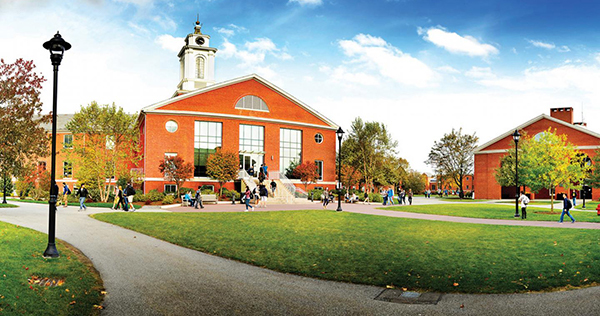History Gets Personal
For Daniel Marrano ’13, the history of Bentley University is much more than the stuff of dusty documents and yellowed news clippings.
“Basically, my whole family has gone to Bentley,” he says of a clan that includes his mother, father and two siblings. “I’ve always been interested in the history of the school, because it’s part of my own history.”


